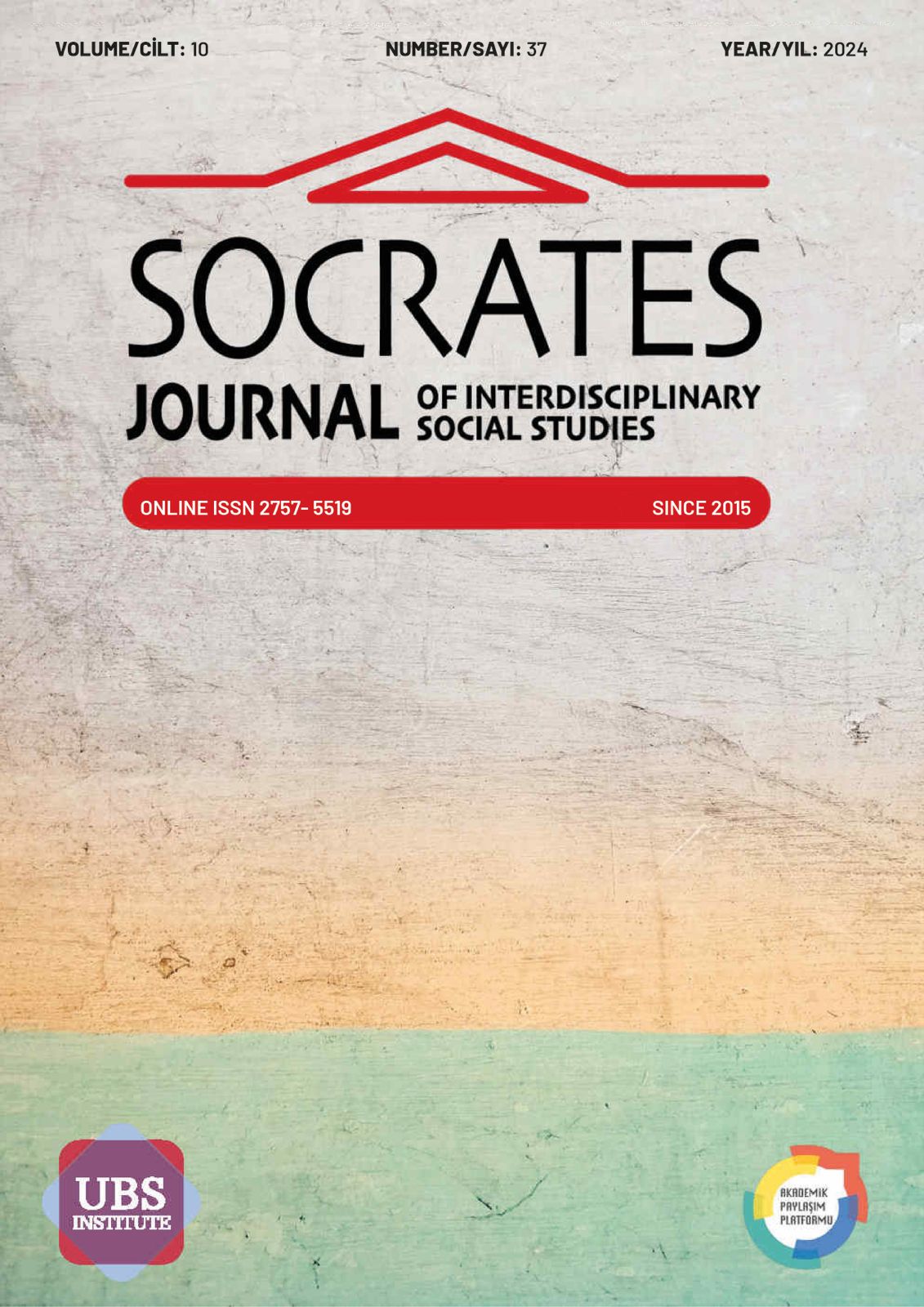IN BUSINESS MANAGEMENT, LEADERSHIP STYLES EMPLOYEE COMMITMENT AND EXAMINING THE EFFECTS ON MOTIVATION
DOI:
https://doi.org/10.5281/zenodo.10500247Abstract
ABSTRACT
Leadership, in line with specific goals and objectives of the company AnIdIr names of persons who have occupational exposure and orientation skills. The increasing reliance on enterprise employees, knowledge, skills and ability in revealing poses importance of the presence of leaders.
Motivation as well as an important factor in improving the performance of both employees and giving direction to human relations is a concept that increases the dependence of the organization. show more effort in terms of efficiency and operational embrace the work of the employees, motivating factors, it is possible with the use of effective leaders. Therefore, leaders are playing an important role in motivating employees.
In this context the study, the effect of employee commitment to the company's leadership and motivation were studied business management. Therefore, a wide range of literature and the preparation of studies in this area have benefited from secondary sources. For the area of application of quantitative (empirical) in order to assess the reliability of the method followed and scale survey was conducted 20 pilot. The obtained data were analyzed by statistical program S. P. S. S. 21.
In increasing the motivation of employees with leadership skills of managers it can be said to be very important. an increase in the performance of the employees has a direct relationship between the height of the motivation. Motivated to improve both the performance of an employee was seen to strengthen the company's dependence on both.
Key Words: Leader, Administrator, Relationship Between Leadership and Management, Motivation, Organizational Commitment
References
Bayo Moriones, J. A., Galdon-Sanchez, J. E., & Güell, M. (2004). Is Seniority-Based Pay Used as a Motivation Device? Evidence from Plant Level Data. Evidence from Plant Level Data (September 2004).
Bilecen, N. (2000). Motivasyonun İş Verimi Üzerindeki Etkileri, (s.72), 2020 ve Ötesi Dergisi, Ankara.
Bosiok, D. & Novi, S. (2013). Leadership styles and creativity. Online Journal of Applied Knowledge Management (OJAKM), 1(2), 64-77.
Çırpan, H. (1999). Örgütsel öğrenme iklimi ve örgüte bağlılık ilişkisi: bir alan araştırması. Doktora tezi, İstanbul Üniversitesi, İstanbul.
Çöl, G. (2004). Örgütsel bağlılık kavramı ve benzer kavramlarla ilişkisi. ISGUC The Journal of Industrial Relations and Human Resources, 6(2).
Güney S. (2012). Liderlik, (s.26), Nobel Yayın, Ankara.
Gürkan, G. Ç. (2006). Örgütsel bağlılık: Örgütsel iklimin örgütsel bağlılık üzerindeki etkisi ve Trakya Üniversitesi'nde örgüt iklimi ile örgütsel bağlılık arasındaki ilişkinin araştırılması. Yayınlanmamış yüksek lisans tezi, Trakya Üniversitesi, Edirne
Newstrom, J.W. (2010). Organizational behavior: Human behavior at work. McGraw-Hill Education Publications.
Küçükahmet, L. (2001). Sınıf yönetiminde yeni yaklaşımlar. Ankara: Nobel Yayınları.
Koçak, R. D., & Özüdoğru, H. (2012). Yöneticilerin liderlik özelliklerinin çalışanların motivasyonu ve performansı üzerindeki etkileri: Kamu ve özel hastanelerinde bir uygulama. Gazi Üniversitesi Ticaret ve Turizm Eğitim Fakültesi Dergisi, 1, 76-88.
Oliver, N. (1990). Rewards, investments, alternatives and organizational commitment: Empirical evidence and theoretical development. Journal of Occupational Psychology, 63(1), 19-31.
Özdevecioğlu, M. (2004). Algılanan örgütsl desteğin işten ayrılma niyeti üzerindeki etkileri. Amme İdaresi Dergisi, 37(4), 97-115.
Özgen, H. ve Türk, M. (1997). Hizmet sektöründe rekabette başarının anahtarı: Personel güçlendirme (Empowerment). Amme İdaresi Dergisi, 30(4), 75-86.
Sargut, S. ve Aktaş, M. (2011). Kültürel değerler ve liderlik. Ankara: Detay Yayıncılık.
Taşbaş, R. H. (1998). Firmaların bünyelerindeki satış elemanlarının Motivasyonunu arttırmada kullandıkları Maddi Olmayan Motivasyon yöntemlerinin satış yöneticilerinin bakış Perspektifiyle değerlendirilmesi Ve ilaç sektörü üzerine Bir Uygulama. Doktora tezi, Marmara Universitesi, İstanbul
Tremblay, M. A., Blanchard, C. M., Taylor, S., Pelletier, L. G., & Villeneuve, M. (2009). Work Extrinsic and Intrinsic Motivation Scale: Its value for organizational psychology research. Canadian Journal of Behavioural Science/Revue canadienne des sciences du comportement, 41(4), 213.
Downloads
Published
How to Cite
Issue
Section
License
Copyright (c) 2024 Socrates Journal of Interdisciplinary Social Studies

This work is licensed under a Creative Commons Attribution 4.0 International License.


